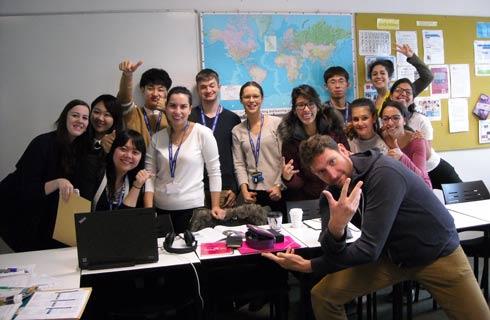- IDP China>
- 课程库>
- 商科与管理>
- 数学与统计学>
- 数学>
- Master of Mathematics in Combinatorics and Optimization - Co-operative Program (Discrete Optimization)
组合数学和优化数学硕士[合作社]-离散优化
Master of Mathematics in Combinatorics and Optimization - Co-operative Program (Discrete Optimization)

学历文凭
Masters Degree

专业院系
Department of Combinatorics and Optimization

开学时间

课程时长

课程学费

国际学生入学条件
Applicants from foreign countries must normally take the Graduate Record Examinations (GRE) General Test and Subject Tests.
Three references, normally from academic sources
Proof of English language proficiency, if applicable. TOEFL 90 (writing 25, speaking 25), IELTS 7.0 (writing 6.5, speaking 6.5)
IDP—雅思考试联合主办方

雅思考试总分
7.0
了解更多
雅思考试指南
- 雅思总分:7
- 托福网考总分:90
- 托福笔试总分:160
- 其他语言考试:PTE (Academic) - 63 (writing 65, speaking 65)
CRICOS代码:
申请截止日期: 请与IDP顾问联系以获取详细信息。
课程简介
Combinatorics is the study of discrete structures and their properties. Many modern scientific advances have employed combinatorial structures to model the physical world, and recent advances in computational technology have made such investigations feasible. In particular, since computers process discrete data, combinatorics has become indispensable to computer science. Optimization, or mathematical programming, is the study of maximizing and minimizing functions subject to specified boundary conditions or constraints. With the emergence of computers, optimization experienced a dramatic growth as a mathematical theory, enhancing both combinatorics and classical analysis. The functions to be optimized arise in engineering, the physical and management sciences, and in various branches of mathematics. In the co-op option, students spend one or more terms working in industry, thus gaining valuable experience while earning their degree. Recently, the co-op option has been undertaken by students whose research focuses on financial applications of optimization. It is recommended that students interested in this option apply for the ordinary (non-co-op) MMath program and then contact the graduate officer about transferring to the co-op program subsequent to their admission.<br><br>Discrete or combinatorial optimization embodies a vast and significant area of combinatorics that interfaces many related subjects. Included among these are linear programming, operations research, theory of algorithms and computational complexity. Much of combinatorial optimization is motivated by very simple and natural problems such as routing problems in networks, packing and covering problems in graph theory, scheduling problems, and sorting problems. But the methodology of the subject encompasses a variety of techniques ranging from elementary tree-growing procedures to constructions of Hilbert bases of integer lattices. The growth of this area has been linked with the development of linear programming and of graph theory over the last forty years. It also has close connections with the theoretical computer science, in particular, the analysis of algorithms. Generally the problems are to find efficient methods of constructing good solutions and to find methods of measuring the solution quality. That is, we wish to be able to produce bounds on the optimum solution which enable us to assert that the error of the solution in hand is no worse than, say, 2%.
相关申请
 预科
预科 奖学金
奖学金 实习机会
实习机会 在校学习
在校学习 跨境学习
跨境学习 校园授课-线上开始
校园授课-线上开始 在线/远程学习
在线/远程学习
学校排名

世界排名201
数据源:泰晤士高等教育世界大学排名
关于滑铁卢大学

滑铁卢大学是加拿大滑铁卢市的一家著名大学,是一所以研究为主的中等大小的公立大学,创建于1957年。以数学、计算机科学、工程学而闻名。该校位于安大略省的西南面的滑铁卢市,占地面积约为1000英亩。滑铁卢大学成立至今,仅数十年便跻身加拿大名校之列,是加拿大发展最快的学校。2011年到2013年,该校一直稳居麦克林杂志评选的加拿大综合性大学排名的第三位,是北美地区最优大学之一,其数学,计算机科学和工程学科教学水平居世界前列。特别是做为北美地区第一个经认可建立数学系的大学,拥有世界上最大的数学系以及世界上最大的合作办学项目。学校共授予100多个本科学位专业,28种硕士及博士学位专业,学校的代表队曾多次获得ACM 国际大学生程序设计竞赛的冠军。
本校相关课程

系统设计工程哲学博士
学历文凭
Ph.D.
开学日期
课程费用总额


系统设计工程工程学硕士
学历文凭
Masters Degree
开学日期
课程费用总额


社会学文学硕士[仅课程]
学历文凭
Masters Degree
开学日期
课程费用总额


Doctor of Philosophy in Religious Studies
学历文凭
Ph.D.
开学日期
课程费用总额


运动机能学博士-工作与健康
学历文凭
Ph.D.
开学日期
课程费用总额


娱乐与休闲研究哲学博士
学历文凭
Ph.D.
开学日期
课程费用总额

其他相关课程

纯粹数学哲学博士
 滑铁卢大学
滑铁卢大学学历文凭
Ph.D.
开学日期
课程费用总额


纯粹数学数学硕士
 滑铁卢大学
滑铁卢大学学历文凭
Masters Degree
开学日期
课程费用总额


组合与优化哲学博士-量子信息
 滑铁卢大学
滑铁卢大学学历文凭
Ph.D.
开学日期
课程费用总额


组合与优化数学硕士-量子信息
 滑铁卢大学
滑铁卢大学学历文凭
Masters Degree
开学日期
课程费用总额


组合与优化数学硕士
 滑铁卢大学
滑铁卢大学学历文凭
Masters Degree
开学日期
课程费用总额


纯粹数学(荣誉)学士学位
 滑铁卢大学
滑铁卢大学学历文凭
Bachelor Degree with Honours
开学日期
课程费用总额


























